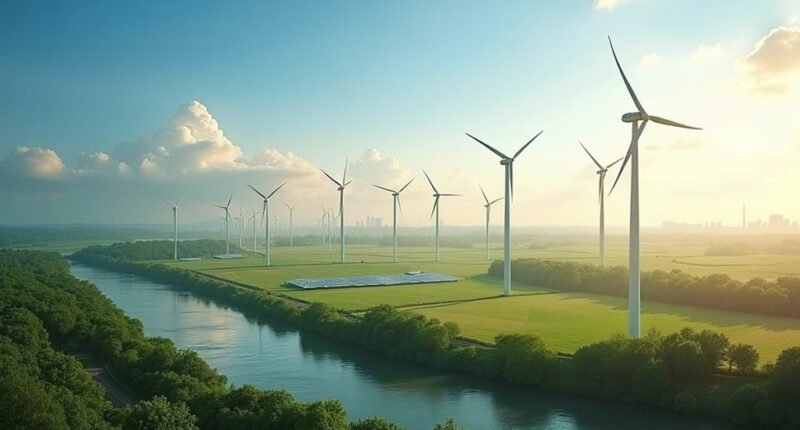The European Union has announced a groundbreaking climate target: a whopping 90% reduction in net greenhouse gas emissions by 2040. This ambitious goal is not just about being flashy; it acts as a vital milestone on the path to achieving net zero by 2050. Backed by science and a commitment to fairness, this target aims to reshape energy policies and stimulate innovation. It’s like upgrading from a bicycle to a rocket ship—fast and powerful! Curious about the implications? There’s more to unpack.
EU’s Ambitious 2040 Climate Goal Unveiled
In a bold move that has climate enthusiasts buzzing like bees in a blooming garden, the European Commission has revealed its ambitious goal for 2040: a striking 90% reduction in net greenhouse gas emissions from 1990 levels.
This audacious target serves as an interim milestone, bridging the gap between the 2030 goal of reducing emissions by 55% and the ultimate aim of achieving net zero by 2050.
The proposal aligns with the European Climate Law, which requires legally binding intermediate goals—a bit like a coach ensuring his team sticks to a rigorous training schedule.
The European Scientific Advisory Board on Climate Change (ESABCC) has backed this target, suggesting that a 90–95% reduction is crucial for the EU to maintain its leadership role in global climate action.
The ESABCC champions a 90–95% reduction, essential for the EU’s climate leadership on the global stage.
The 90% target, labeled the lower end of their recommendations, is grounded in scientific analysis drawn from 36 emissions scenarios.
This data considers crucial criteria such as global fairness, technological feasibility, and social acceptability—essentially ensuring that the goal isn’t just pie in the sky. Massive expansion of renewable electricity generation needed to achieve this target. Additionally, the proposal includes up to 3% international credits from 2036 as part of the Paris Agreement, focusing on enhancing the EU’s climate strategy.
The EU’s approach demonstrates how setting science-based targets can provide a clear roadmap for organizations and governments to effectively combat climate change.
However, this ambitious target won’t be a slam dunk.
It must undergo the negotiation gauntlet between the European Parliament and Member States, who have expressed a mix of support and caution.
Some countries are keen to push for more flexibility, while others, particularly in the heavy industry and fossil fuel sectors, lobby for a less ambitious approach.
Meanwhile, the renewable energy sector stands firmly behind the high ambition, keen to tap into the investment opportunities that decarbonization promises.
Ultimately, the adoption of this 2040 target could reshape the EU’s climate, energy, and economic policies, guiding investments and reducing uncertainty for businesses.
While some companies remain tight-lipped about their positions, the stakes are high.
The EU’s commitment to aggressive climate action signals a hopeful future, where innovation and resilience can pave the way for a cleaner planet—one step at a time.









